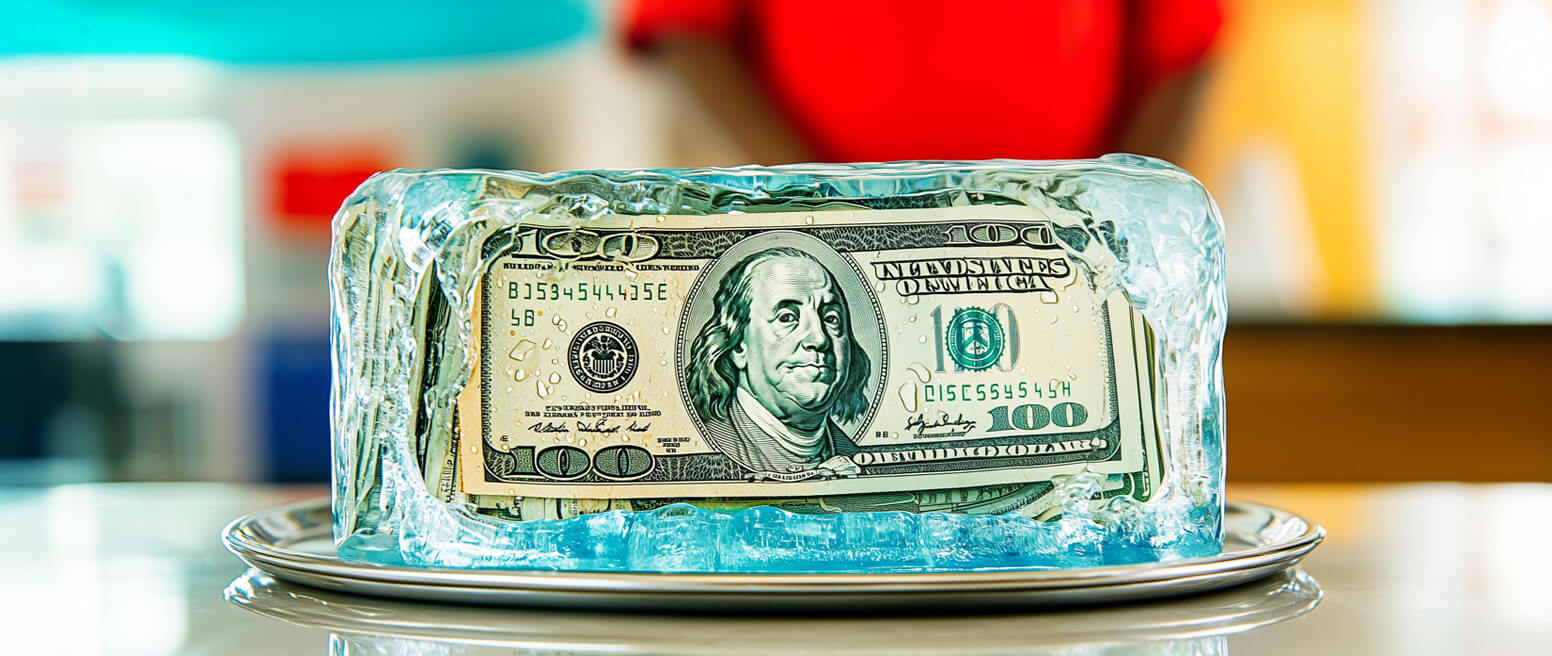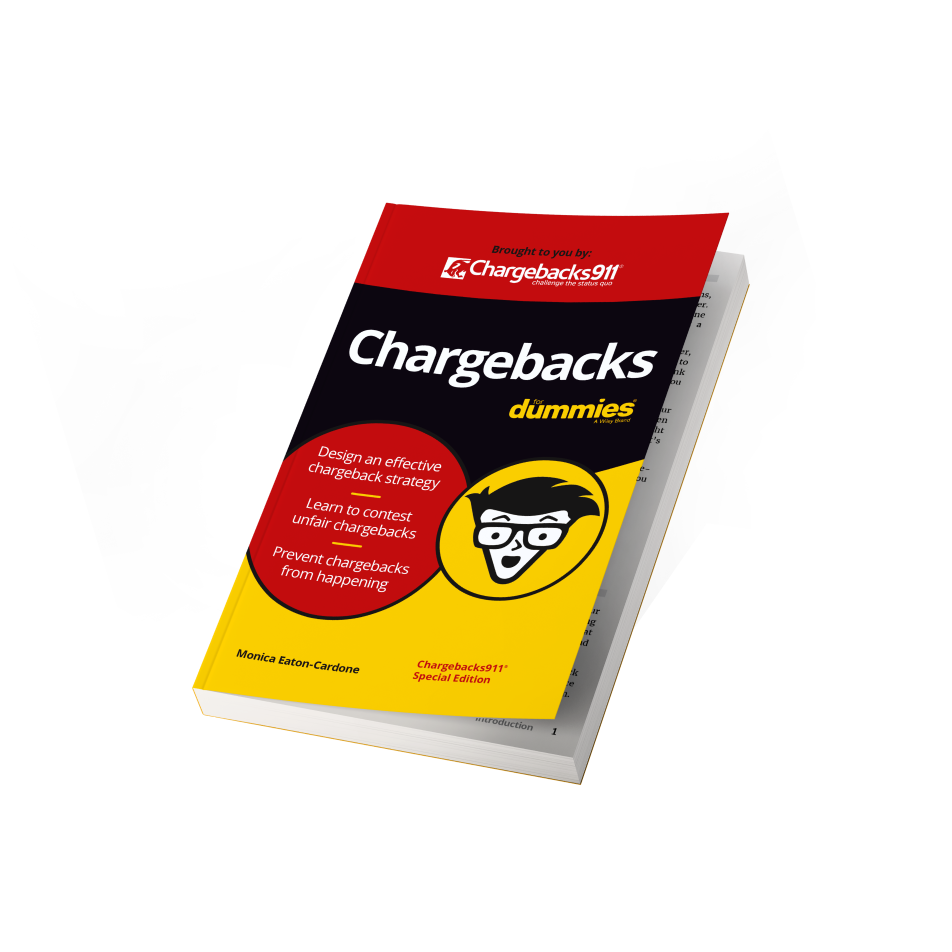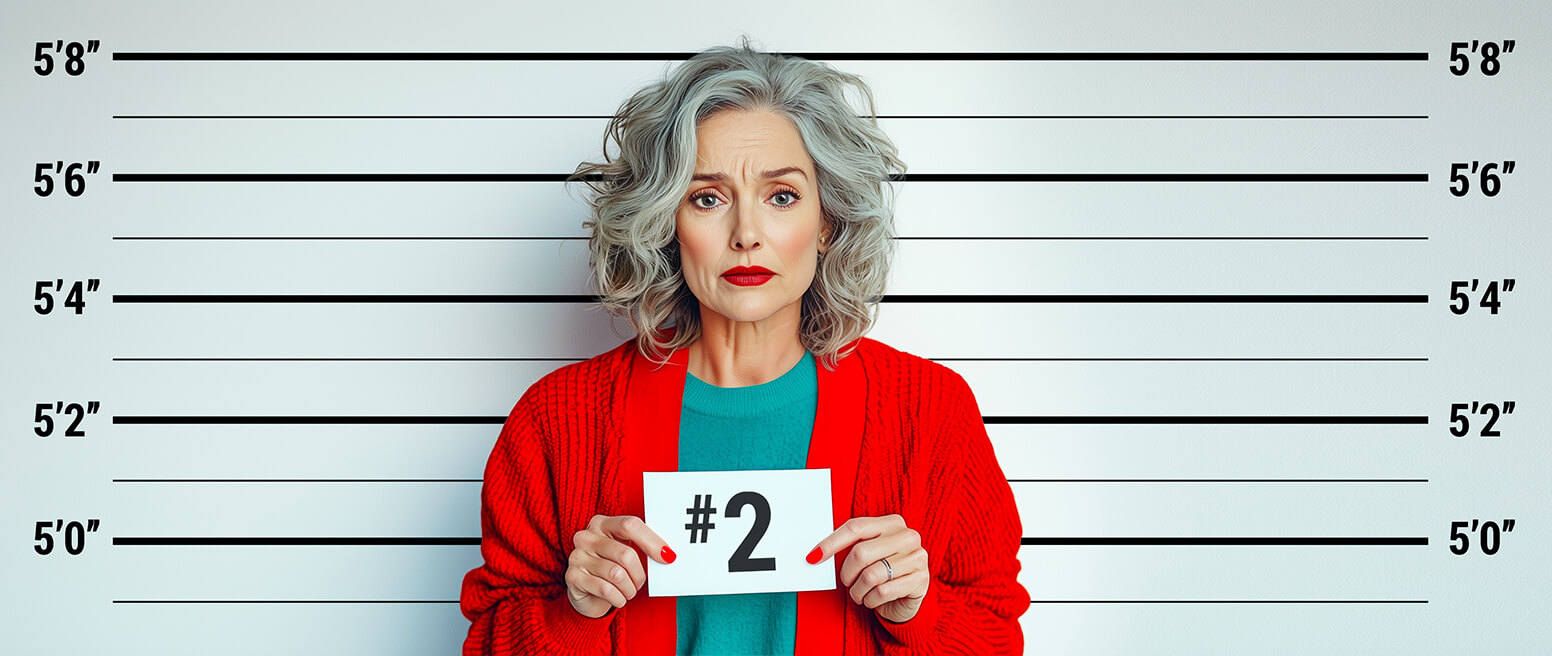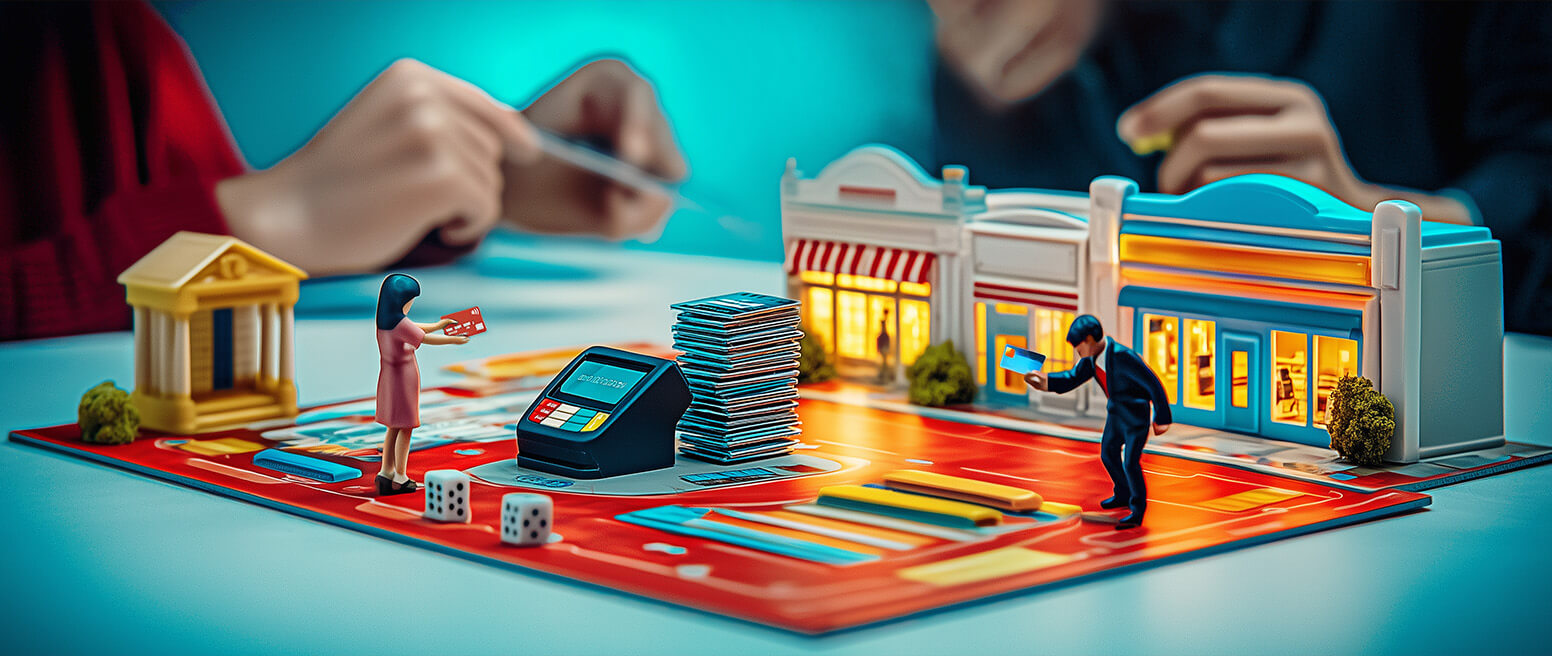How Can You Secure a Provisional Credit Reversal?
Ever waited longer than usual for a transaction to be verified or had to get a transaction reversed? If so, you might have seen provisional credit appear on your statement.
When a chargeback is filed, the process to reach a final verdict can extend for weeks or even months. During this waiting period, issuing banks typically provide cardholders with a provisional credit covering the amount in question. If the resolution favors the merchant, this provisional credit can be easily reversed. But, it serves the purpose of preventing any interruption in the consumer's access to funds throughout the duration of the dispute.
Provisional credits are a common occurrence. However, they can do a lot of damage to businesses if they’re issued inaccurately.
Recommended reading
- What Happens if You File a False Chargeback Claim?
- Chargeback Stats: All the Key Dispute Data Points for 2025
- Here are the 7 Valid Reasons to Dispute a Charge
- A Step-by-Step Guide to the 2025 Chargeback Scheme
- A Step-By-Step Guide to the Chargeback Process in 2025
- Debit Card Chargebacks: Everything You Need to Know in 2025
What is a Provisional Credit?
- Provisional Credit
A provisional credit is a temporary credit issued by a bank to an account holder. This statement item can later be reversed or made permanent, depending on the reason for the credit issuance.
[noun]/* prə ● viZ ● Hən ● l ● kre ● dət/
Banks may issue a credit to an account holder at their discretion. The credit will then appear on the cardholder’s statement as its own distinct line item. The entry on the cardholder’s statement will note that it’s a credit, but it may not always explain the reason in detail.
If cardholders are confused about the source of a provisional credit, they can usually contact the bank for more information. Their issuing bank will be able to divulge the details of the credit, including where it came from, why it was issued, and how long it will take before the provisional credit becomes permanent.
Why Do Banks Issue Provisional Credits?
Banks issue provisional credits in response to credit and debit card disputes. These disputes can take several days, or even weeks to resolve. So, a provisional credit is a courtesy provided by the bank to ensure the cardholder has sufficient funds while the dispute is resolved.
There are a few reasons why a bank might offer a provisional credit to a cardholder.
In some cases, it could be because a transaction has not yet been verified. If that’s the case, the credit would work like a placeholder until the transaction is settled. Most often, though, banks issue provisional credits as part of the transaction dispute — or chargeback — process.
Chargebacks are forced payment reversals conducted at the banking level. To illustrate, let’s say a cardholder contacts their issuing bank, claiming that one of the charges on their bank statement was unauthorized. The bank would then investigate the claim. If it appears that the cardholder is telling the truth, the bank will issue a credit to the cardholder and file a chargeback on the cardholder’s behalf. The issuer claws the funds back from the merchant’s acquiring bank, which then debits the cost from the merchant’s account.
So, what are some legitimate claims that would entitle someone to a debit or credit card provisional credit? Here are a few examples:
- The transaction in question was unauthorized (i.e. fraud).
- The transaction total was more than what the cardholder agreed to at the point of purchase.
- The merchant committed an error in the transaction process.
- The merchant used deceptive tactics to “trick” the cardholder.
- The merchant submitted a rebill for a subscription after the cardholder canceled the service.
This is not an exhaustive list. There are literally dozens of different reason codes for each card network. Every reason code has its own rules and stipulations meant to explain why the bank filed the chargeback.
How The Provisional Credit Process Works
To put it simply, banks offer provisional credits to maintain customer satisfaction.
The chargeback process can take weeks — or even months — to finally resolve a dispute. If the funds in question were held in limbo during that time, it would leave account holders without access to their funds in cases of fraudulent charges. Banks issue provisional credits to encourage customers to continue using their credit cards for purchases with confidence.
Here's a breakdown of how the process typically unfolds:
Step #1 | Cardholder Disputes Transaction
The first step involves identifying a transaction that a customer has disputed. Reasons for disputes can vary, from fraud and billing errors to unauthorized charges. Customers should regularly check their credit card statements and report any anomalies to their bank immediately.
Step #2 | Initial Review
The bank receives the cardholder’s inquiry and does a quick, initial review of the claim. They verify that the transaction took place, and that it is within the allowable time frame for a dispute according to card network rules.
Step #3 | Applying Provisional Credit
If the bank decides the dispute could be warranted, they’ll issue a provisional credit from their own reserves. This will temporarily credit the cardholder’s account with an amount equal to the disputed transaction. For instance, if a $100 charge is disputed, the bank temporarily credits the customer's account with $100 until the dispute is resolved. However, it doesn't mean the dispute is settled.
Step #4 | Conducting the Investigation
The bank investigates in more depth, examining transaction details and evidence from the merchant and the customer. The bank may also reach out to the merchant for more information.
Step #5 | Filing the Dispute
The bank determines that the dispute is valid and files a chargeback. They claw the funds from the transaction back from the merchant, and the provisional credit is made permanent. This is assuming the bank sides with the cardholder; in cases in which the merchant wins, the provisional credit would be reversed, and the funds returned to the merchant.
The Consumer Financial Protection Bureau offers guidelines for managing these disputes. It's important to note that provisional credits are temporary and can be withdrawn if the bank's investigation deems the transaction valid. This could complicate situations in which a customer has already spent the provisional credit. The bank would then need to retrieve those funds from the cardholder to correct the reversal.

How Long Does a Provisional Credit Stay in Place?
A provisional credit can remain in place for the entire duration of the dispute investigation process.
How long it takes to resolve a chargeback depends on a number of factors. The reason for the dispute, the complexity of the investigation, the issuing bank, the payment card network, and how quickly the merchant responds will all impact the timeline.
Generally speaking, most chargeback cases are resolved within 30 to 60 days, though open-and-shut cases of fraud or unauthorized activity may take as little as several days to finalize. On the other hand, cases that get escalated to arbitration can take up to six months to resolve.
Buyers should not spend provisional credits without considering how likely they are to win the dispute in question. Otherwise, they may find themselves subject to overdraft fees, credit limit overages, or other unpleasant financial consequences if they lose.
How Do Provisional Credits Affect Merchants?
When a customer disputes a charge and gets a provisional credit, it's the business owner who feels the pinch. These credits are meant to protect shoppers from wrong charges or mistakes, but they can bring several headaches for businesses. These include:
To avoid these problems, businesses should be clear about what they're selling, offer top-notch customer service, and use tools to prevent fraud. This can help cut down on disputes and make running the business smoother.
Can Merchants Reverse Provisional Credits?
Merchants can reverse credits and get their money back, assuming they have sufficient evidence proving that the dispute claim was invalid.
Yes. After a cardholder files a dispute, the merchant has two options. They can ignore it and let the chargeback proceed. In this case, they’d lose the dispute automatically, and the provisional credit would become a permanent reversal of funds. The second option is to fight the chargeback and attempt to secure a provisional credit reversal if the merchant believes the cardholder’s claim is invalid. This can be accomplished through a process called representment.
If merchants successfully fight and win chargebacks through the representment process, the issuer may reverse the provisional credits granted to the cardholder. However, winning a chargeback doesn’t guarantee that a merchant will recover revenue from the transaction being disputed.
The average merchant in 2024 fights 43% of all chargeback cases they receive. On average, 38% of these chargebacks resolved in favor of the merchant. Even so, merchants achieved a net recovery rate of just 12%. This means that merchants recovered revenue in one out of every eight disputes, despite winning nearly four in ten re-presented chargebacks.
How to Prevent a Provisional Credit from Becoming a Chargeback
Resolving chargebacks is a tiring and costly process. Chargebacks can lead to lost revenue and inventory, in addition to chargeback fees and reputational damage.
Preventing disputes, rather than fighting them, is the best and most cost-effective way to minimize their consequences. Strategies include:
Need Help?
Remember, if you decide to fight a chargeback through representment, you’ll need clear and compelling evidence for your case. This can include anything from order forms and tracking information to communication records and social evidence that contradicts the cardholder’s claim. But remember, there are hard chargeback timelines for response, and chargeback rules are always subject to change.
Have additional questions about these statement credits or provisional credit reversals? Want to learn how merchants can give themselves an edge in fighting against invalid chargebacks and recover their hard-earned cash?
Chargebacks911® offers the industry’s first end-to-end chargeback solution. Contact us today and learn how much you stand to save with professional chargeback management.
FAQs
Why did my bank give me a provisional credit?
Your bank will issue you provisional credit against one or more transactions when you file a chargeback. Provisional credits are intended to offer you temporary financial relief while your bank investigates the dispute you initiated.
How long does a provisional credit take?
The time it takes for a provisional credit to be issued can vary, but banks typically aim to provide it within 1-2 business days after a dispute is filed. The exact timeline depends on the bank's policies and the specific circumstances of the dispute.
Can a provisional credit be reversed?
Yes, a provisional credit can be reversed if the bank determines the original transaction was valid or if the merchant wins the dispute. This means the temporary funds provided to the customer would be withdrawn from their account.
Can you withdraw money from a provisional credit?
Yes, you can withdraw money from a provisional credit, as it is made available in your account balance just like any other credit. However, if the provisional credit is later reversed, you are responsible for repaying that amount.
Do I have to pay back provisional credit?
If you’re a cardholder and ultimately win the dispute you file, then the provisional credit becomes permanent and you won’t have to pay it back. If you ultimately lose the dispute, then the provisional credit will be reversed, and you could be on the hook for the full amount of the credit.
How long does a provisional credit last?
Provisional credits last for the duration of the chargeback investigation process. In straightforward disputes that are resolved quickly, like those involving well-substantiated cases of fraud or unauthorized activity, provisional credits may last for several days. For more complex chargeback cases, provisional credits may last for up to 90 days or more.
Is provisional credit good or bad?
Provisional credits can be good because they offer temporary financial relief to cardholders and help smooth out cash flow. However, provisional credits can be reversed if cardholders lose the disputes they file, so it may be risky to spend them indiscriminately.














